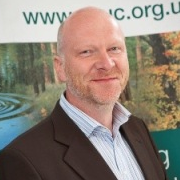The Role of Higher Education Institutions for Sustainability
A special issue of Sustainability (ISSN 2071-1050). This special issue belongs to the section "Sustainable Education and Approaches".
Deadline for manuscript submissions: closed (30 September 2021) | Viewed by 51569
Special Issue Editors
Interests: Education; Sustainable Campus; Higher Education Institutions
Special Issue Information
Dear colleagues,
This is a call for a Special Issue addressing the role of higher education institutions in sustainability.
Higher education institutions and their campuses are transforming to become important places of leadership, research and the realisation of a sustainable society. Diverse learning programs in sustainability consolidate the knowledge of faculty members, the ideas and demands of students, and the needs of stakeholders to provide solutions for society beyond educational purposes. The transformation of higher education institutions from ivory towers to societal change is essential for our sustainable future.
The development of a systematic approach to sustainability research and curricula, environmental management, sustainability promotion on campus, social engagement at regional, national and global levels, is nowadays commonly recognized as a social and ecological responsibility of higher education institutions. A higher education institution taking this responsibility is currently referred to as a concept termed the “sustainable university” or “sustainable campus” (campus sustainability).
Research articles, reviews, communications and concept papers pertaining to “sustainable universities” or “sustainable campuses” (campus sustainability) will be included in this Special Issue. We welcome submissions based on diverse case studies at any scale: on campus, multi-institutional, regional, national, international, etc.
Examples of topics are:
- Philosophy and implementation of campus sustainability
- University sustainability strategy
- Social engagement and value of a higher education institution
- Partnership between a higher education institution and other sectors
- Sustainability research and curriculum development
- Student engagement for campus sustainability
- Student co-creation of a sustainable university
- Environmentally efficient operations
- Role and value of a university within a society
- Campus planning for sustainability
- Function of a university campus as an experimental model
- Climate targeting, mitigation and adaptation
- Sustainability auditing and reporting
Dr. Maki Ikegami
Mr. Iain Patton
Guest Editors
Manuscript Submission Information
Manuscripts should be submitted online at www.mdpi.com by registering and logging in to this website. Once you are registered, click here to go to the submission form. Manuscripts can be submitted until the deadline. All submissions that pass pre-check are peer-reviewed. Accepted papers will be published continuously in the journal (as soon as accepted) and will be listed together on the special issue website. Research articles, review articles as well as short communications are invited. For planned papers, a title and short abstract (about 100 words) can be sent to the Editorial Office for announcement on this website.
Submitted manuscripts should not have been published previously, nor be under consideration for publication elsewhere (except conference proceedings papers). All manuscripts are thoroughly refereed through a single-blind peer-review process. A guide for authors and other relevant information for submission of manuscripts is available on the Instructions for Authors page. Sustainability is an international peer-reviewed open access semimonthly journal published by MDPI.
Please visit the Instructions for Authors page before submitting a manuscript. The Article Processing Charge (APC) for publication in this open access journal is 2400 CHF (Swiss Francs). Submitted papers should be well formatted and use good English. Authors may use MDPI's English editing service prior to publication or during author revisions.
Benefits of Publishing in a Special Issue
- Ease of navigation: Grouping papers by topic helps scholars navigate broad scope journals more efficiently.
- Greater discoverability: Special Issues support the reach and impact of scientific research. Articles in Special Issues are more discoverable and cited more frequently.
- Expansion of research network: Special Issues facilitate connections among authors, fostering scientific collaborations.
- External promotion: Articles in Special Issues are often promoted through the journal's social media, increasing their visibility.
- e-Book format: Special Issues with more than 10 articles can be published as dedicated e-books, ensuring wide and rapid dissemination.
Further information on MDPI's Special Issue polices can be found here.






